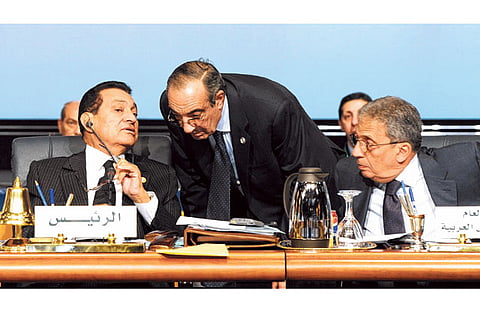Socio-economic challenges in Arab states
Economic challenges were at the heart of recent political changes in Tunisia

The second Arab Econ-omic Development, and Social summit held in Egypt last week could not have been more timely. Economic challenges, notably job opportunities, were at the heart of recent political changes in Tunisia.
Regarding the unemployment headache, there is a need to create some 100 million jobs in Arab countries by 2020. This particular issue posed a serious challenge to Arab leaders and officials meeting in Egypt's Red Sea resort of Sharm Al Shaikh.
Fortunately, Arab countries are aware of the challenge and hence decided to start implementing a special fund offering soft financing for small and medium enterprises. Similar to many other parts of the world, SMEs are looked up on in the Arab world as a main source of employment opportunities.
The project was begun during the summit in Kuwait in January 2009 with a capital of $2 billion (Dh7.34 billion). As a testimony of its generosity, Kuwait contributed some $500 million towards the fund's capital. By one account, total committed money for the fund amounted to $1.3 billion prior to start of the meeting in Egypt. However, not all Arab states have reportedly committed themselves to contribute specific money to the fund.
Nevertheless, some proposals emerging from last week's Arab economic summit are not necessarily viable.
The summiteers talked about a rail link of 22 Arab states, undoubtedly uniquely ambitious. Trouble is, members are spread over two continents, namely Asia and Africa, a matter adding to complexities. Also, distances among some states, such as that between Morocco and Iraq are exceptionally far-reaching.
Yet there is possibility for regional link on the back of some emerging opportunities like that of Qatar hosting World Cup 2022. For instance, chances of a link between Qatar and Bahrain are more likely than ever thanks to World Cup 2022. The fresh proposal calls for putting in place infrastructure for cars on the one hand and trains on the other.
Another means for overcoming socio-economic challenges relates to strengthening inter-Arab trade. Sadly, trade levels amongst Arab countries are absolutely below expectations by virtue of hovering around 12 per cent of total foreign trade of Arab countries.
Trade
Several factors explain the low level of trade amongst Arab countries. One such debacle is geography, requiring dependence on air rather than port logistics. Still, air links among Arab countries are not necessarily frequent or direct. However, GCC airlines are providing a helping hand in connecting Arab cities. Still, the proposal to commence a customs union in 2010 and complete the project in 2015 is a worthwhile one. The idea provides members ample time to adapt their economies to requirements of customs union status.
The project should make Arab states more interdependent in their trading activities.
In fact, the credit for existing trade among Arab countries is primarily reserved for integration of Gulf Cooperation Council (GCC) economies. The six-nation GCC turned into a customs union in 2003. The agreement requires adoption of a common external trade policy with non-members.
Also, in 2008 the GCC countries started the Gulf Common Market (GCM), in turn allowing for free flow of factors of production amongst member states.
Nevertheless, increasing the inter-Arab share of total foreign trade of Arab states from 12 to 20 per cent requires doing away with non-tariff measures such as bureaucracy and paper-work.
In the same context, authorities need to sort out visa requirements among Arab nations, particularly for business people.
All possibilities are likely from now until 2013 when Saudi Arabia hosts the third Arab economic summit.
Dr Jasim Ali is a Member of Parliament in Bahrain



